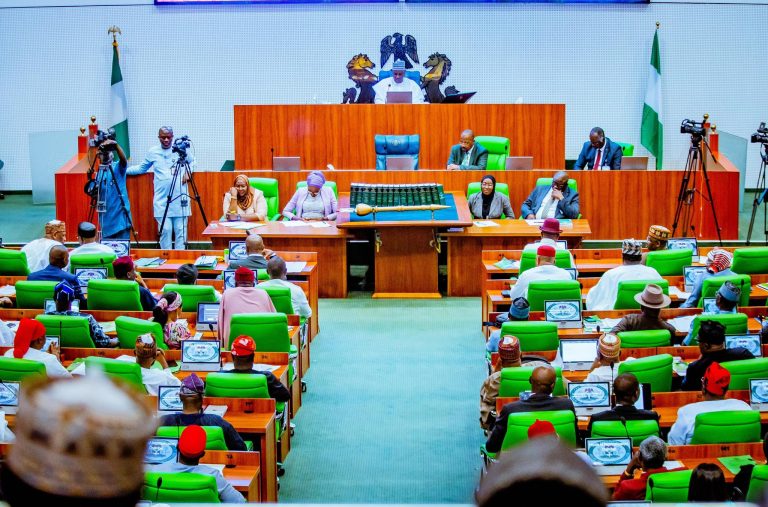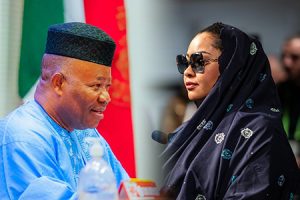
A recent proposal by the House of Representatives Committee on Constitution Review to establish 31 new states in Nigeria has ignited widespread debate among political leaders, socio-cultural organizations, and concerned citizens.
If approved, this initiative would increase Nigeria’s current 36 states to 67, significantly altering the country’s administrative and governance structure. The proposal was officially announced during a plenary session on Thursday, where Deputy Speaker Benjamin Kalu, who presided in the absence of Speaker Tajudeen Abbas, read out the details of the recommendation.
Proposed New States Across Nigeria’s Regions
According to the document presented, the proposed states and their respective regions include:
- North-Central: Okun, Okura, and Confluence (from Kogi); Benue Ala and Apa (from Benue); FCT State
- North-East: Amana (Adamawa); Katagum (Bauchi); Savannah (Borno); Muri (Taraba)
- North-West: New Kaduna, Gujarat (Kaduna); Tiga, Ari (Kano); Kainji (Kebbi)
- South-East: Etiti, Orashi (sixth states in the South-East); Adada (Enugu); Orlu (Imo); Aba (Abia)
- South-South: Ogoja (Cross River); Warri (Delta); Ori, Obolo (Rivers)
- South-West: Torumbe (Ondo); Ibadan (Oyo); Lagoon (Lagos); Ijebu, Ogun (Ogun); Oke-Ogun/Ijesha (Oyo/Ogun/Osun)
The committee emphasized that for the proposal to materialize, it must meet the constitutional requirements, which include securing a two-thirds majority approval from both the National Assembly and the affected State Houses of Assembly, as well as the endorsement of local government councils.
Mixed Reactions from Socio-Political Groups
While some stakeholders view the proposed state creation as an opportunity to enhance governance and regional representation, others argue that it is an unnecessary distraction that could further strain Nigeria’s fragile economy.
Afenifere and Arewa Consultative Forum Reject Proposal
The Yoruba socio-political group Afenifere has strongly opposed the initiative, arguing that it contradicts their long-standing advocacy for true federalism. The group’s National Organizing Secretary, Abagun Kole Omololu, dismissed the proposal as a political maneuver that fails to address the fundamental structural problems facing Nigeria.
“The recent move by the House of Representatives to create 31 new states does not align with our demand for genuine federalism. Rather than solving governance challenges, this will only deepen economic inefficiencies,” Omololu stated in an interview.
He further argued that many existing states already struggle with financial sustainability, relying heavily on federal allocations rather than generating independent revenue. Afenifere insists that the country’s real issue is not the number of states but the over-centralization of power, which has stifled regional development.
Similarly, the Arewa Consultative Forum (ACF) dismissed the proposal as impractical and unnecessary. The forum’s National Publicity Secretary, Prof. Tukur Muhammad-Baba, argued that creating more states would only escalate governance costs without addressing the country’s fundamental problems.
“How many of the current 36 states are economically viable? Many of them struggle to meet administrative costs, yet we are talking about adding more states. This will only increase government overhead expenses and create more divisions,” Muhammad-Baba stated.
He urged the government to focus on pressing socio-economic issues such as poverty, unemployment, and insecurity instead of embarking on what he termed a “wasteful exercise.”
Middle Belt Forum and Ohanaeze Ndigbo Back State Creation
On the other hand, some groups have expressed strong support for the proposal, seeing it as a means to correct historical injustices in state representation.
The Middle Belt Forum (MBF), through its National President Bitrus Pogu, welcomed the initiative, arguing that it would enhance equity in governance. He cited instances where certain regions, such as Southern Borno, have never produced a state governor due to existing state structures.
“The creation of new states will help resolve long-standing governance imbalances and foster inclusivity. For instance, Southern Borno has never produced a governor, while Northern and Central Borno have consistently held power. This proposal seeks to rectify such disparities,” Pogu asserted.
Similarly, Ohanaeze Ndigbo Worldwide, the apex Igbo socio-cultural group, called for additional states in the South-East, arguing that the region has been historically marginalized in state creation. The group’s National Publicity Secretary, Ezechi Chukwu, criticized the proposal for failing to adequately address the South-East’s demands.
“It is unfair that the South-East, despite its significant contributions to Nigeria’s economy and infrastructure, has the least number of states. If justice is to prevail, the South-East should receive the highest number of new states to balance the geopolitical equation,” Chukwu emphasized.
PANDEF Expresses Conditional Support
The Pan-Niger Delta Forum (PANDEF) acknowledged the possibility of creating new states but stressed that any such move should be based on economic sustainability rather than mere political considerations.
The forum’s spokesperson, Christopher Ominimini, argued that state creation should not become an avenue for dependency on the oil-rich Niger Delta region. Instead, he suggested that all states should have the ability to generate and control their own resources.
“If new states must be created, then each geopolitical zone should have an equal number of states. Additionally, states should be allowed to control their resources and remit an agreed percentage to the federal government, as envisioned by Nigeria’s founding fathers,” he said.
Economic and Political Implications
The proposal to create new states raises crucial economic and administrative concerns. Many existing states already struggle with low internally generated revenue and rely on federal allocations to function. Expanding the number of states could significantly increase governance costs, including funding for new state governments, civil service structures, and infrastructure development.
Politically, the move could deepen divisions and spark fresh agitations from groups that feel excluded from the process. Additionally, the challenge of securing the necessary constitutional approvals may prove difficult, given the mixed reactions from political stakeholders.
Conclusion: The Path Forward
As Nigeria continues to grapple with governance and economic challenges, the debate over state creation underscores deeper structural issues within the country’s federal system. While some view the proposal as a step towards equitable representation, others see it as a costly distraction from more pressing national concerns.
Ultimately, whether or not the proposal succeeds will depend on the political will of lawmakers, the economic viability of the proposed states, and the broader question of whether Nigeria should prioritize restructuring over state proliferation.
For now, the House of Representatives’ proposal remains a subject of national discourse, with various stakeholders closely watching its next steps.





